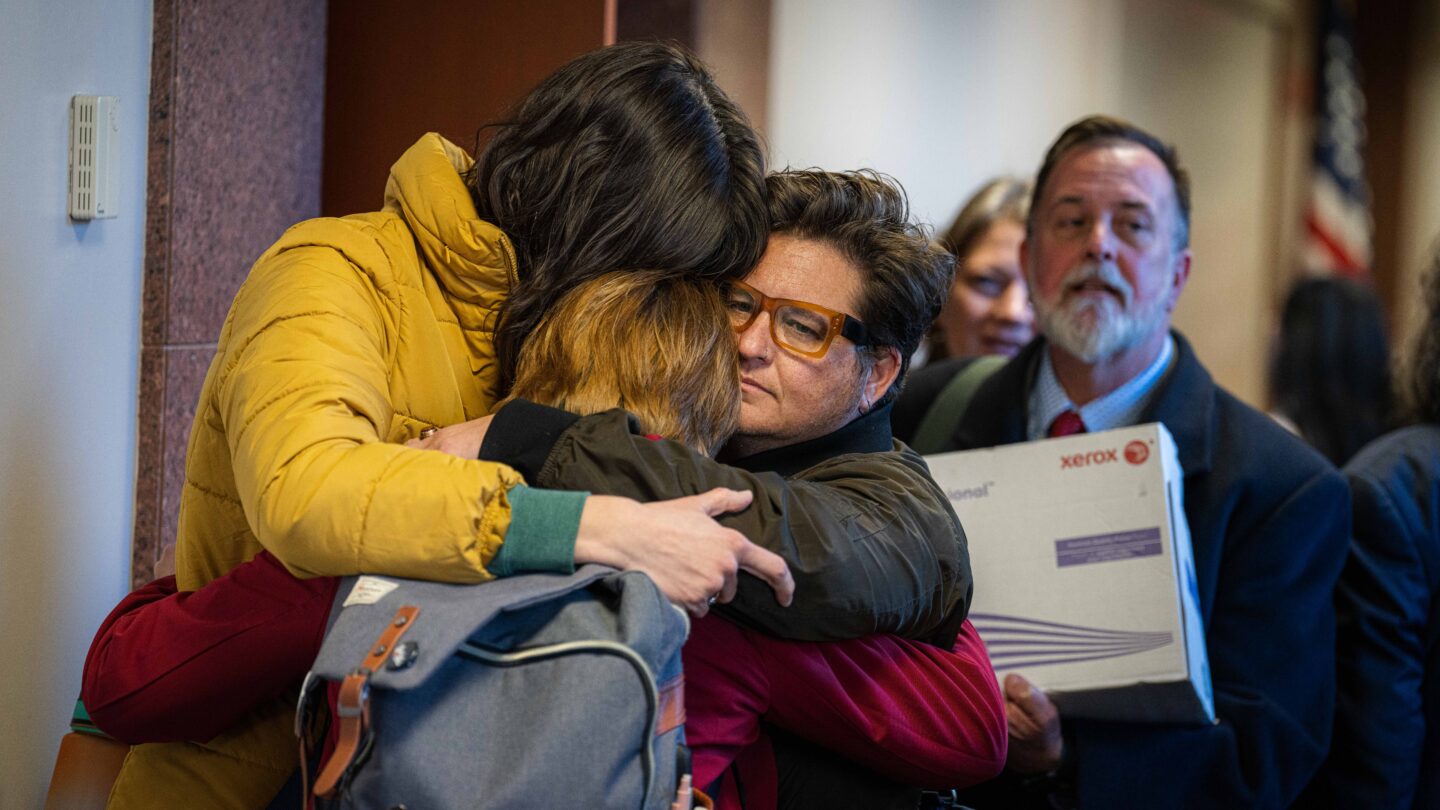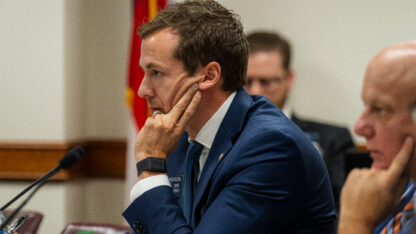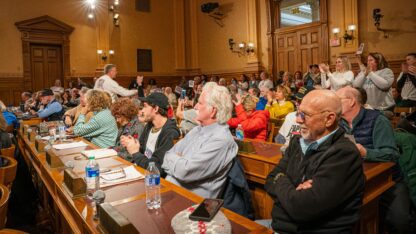Where should transgender students go to use the bathroom? That’s one of the questions pondered by the Georgia House Education Policy Subcommittee Thursday as it considered a bill calling on school districts to designate multiple occupancy restrooms either for people whose bodies produce eggs or whose bodies produce sperm.
Fayetteville Republican Rep. Josh Bonner’s House Bill 936 did not get a subcommittee vote Thursday. Next Thursday is Crossover Day, the final day for a bill to pass the full House or Senate without unusual legislative maneuvering.
Bonner said the bill is not about targeting young transgender Georgians.
“The way it’s termed in the bill is that in the event that the school has to make a reasonable accommodation for students, so again, it stipulates that biological males use the male facilities, biological females use the female facilities, and if there is a child that is struggling with identity or uncomfortable with any one of those options, then the school is actually required in this case to make a reasonable accommodation for the student,” Bonner said. “And again, that applies for the restrooms, for locker rooms, and for overnight field trips. So I do believe it’s a very common sense approach to this issue that does protect all children.”
The reasonable accommodation would usually be access to a gender-neutral bathroom such as the staff restroom, Bonner said.
Lucas Hill, a DeKalb County man who graduated high school last year, said those accommodations are far from convenient. He came out as transgender as an eighth grader and said his private high school was more accommodating than public schools in the area, but he had to go to the front office and ask for the key to the staff restroom. That was difficult during school hours and impossible during extracurriculars when the office staff had already locked up.
“If I had band practice or something, sometimes I could stay as late as 10 p.m., sometimes they would go late. Literally, I couldn’t use the bathroom,” he said.
Trans people and parents of trans children testified that they do not feel protected by the proposed legislation.
More than a dozen people testified against the bill, and several brought up the case of Nex Benedict, a nonbinary Oklahoma teen who died this month after an alleged assault in a high school bathroom.
The bill could cause more bullying of transgender kids, said Danielle Bonanno, president emerita at the nonprofit Athens Pride and Queer Collective.
“This isn’t about protection, this bill is about exclusion, creating fear among those seeking to learn and live in peace,” she said. “Transgender children, more often victims than perpetrators, are put at risk, not protected. HB 936 contradicts equality, dignity and respect, teaching that discrimination is okay. It risks costly legal battles and educational resource diversion. This bill will harm our children, divide our communities, and move Georgia backwards.”
Others argued the bill would be difficult to enforce without violating students’ privacy and create problems by sending muscular, bearded trans boys into the girls’ room or feminine trans girls into the boys’ room. Some said cisgender girls who are perceived as masculine or boys perceived as feminine could also undergo scrutiny.
“This bill is nothing but a nakedly political attempt to demonize the existence of transgender youth – plain and simple,” said Human Rights Campaign Georgia Director Bentley Hudgins. “It’s also a complete and utter invasion of privacy that will make all children susceptible to harassment and abuse. With countless issues facing Georgia’s schools, it’s shameful and embarrassing that politicians are prioritizing legislation like this that falls out of line with the views of most Americans. It’s why we demand that lawmakers reject SB438 and all anti-LGBTQ+ legislation so that each student, including transgender kids, can focus on what’s most important in their lives, and that’s being kids.”
A similar Senate bill, SB 438, would target bathroom use and sports participation.
At least 11 other states have such bathroom bans, according to Human Rights Campaign data.
Two people spoke in favor of the bill, an attorney for the conservative lobbying group Frontline Policy Council, and Mike Griffin, a lobbyist for the Georgia Southern Baptist Mission Board.
“We support this legislation for a number of reasons,” Griffin said. “We do support it from a biblical perspective. We do believe everyone is created in the image of God, male or female. We support it from a common sense perspective. It makes sense that biological males should not be in private spaces with biological females or vice versa. There’s a fairness perspective. It’s simply not fair for girls or boys to be put in compromising, embarrassing situations when they don’t have any choice over that.”
Griffin argued the bill will also protect children from sexual abuse.
Subcommittee Chair Rep. Scott Hilton, a Peachtree Corners Republican, ended the meeting without a vote, saying the subcommittee will continue to work on the bill and hear from people in the interim.
Rep. David Wilkerson, a Powder Springs Democrat and member of the education Committee, said there’s no telling if or when the subcommittee will meet again before Crossover Day.
“It’s just when we get a text from the chairman saying ‘subcommittee’s meeting,’” he said. “So there could be one. There could be none. There could be more than that. You just have to pay attention.”
This story was provided by WABE content partner Georgia Recorder.










